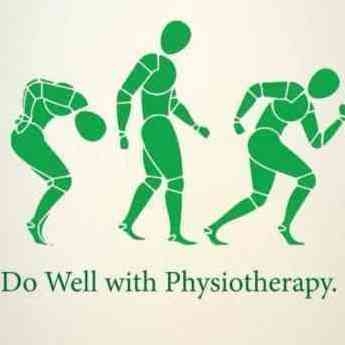+918042754929

This is your website preview.
Currently it only shows your basic business info. Start adding relevant business details such as description, images and products or services to gain your customers attention by using Boost 360 android app / iOS App / web portal.
☆☆Rehabilitation for Parkinson's Disease☆☆ Parkinson’s disease is a progressive disorder that is caused by degeneration of nerve cells in the part of the brain called the substantia nigra, which controls movement. These nerve cells die or become impaired, losing the ability to produce an important chemical called dopamine. Studies have shown that symptoms of Parkinson's develop in patients with an 80 percent or greater loss of dopamine-producing cells in the substantia nigra. Normally, dopamine operates in a delicate balance with other neurotransmitters to help coordinate the millions of nerve and muscle cells involved in movement. Without enough dopamine, this balance is disrupted, resulting in tremor (trembling in the hands, arms, legs and jaw); rigidity (stiffness of the limbs); slowness of movement; and impaired balance and coordination – the hallmark symptoms of Parkinson's. ★ Symptoms - ☆ Tremor or the involuntary and rhythmic movements of the hands, arms, legs and jaw ☆ Muscle rigidity or stiffness of the limbs – most common in the arms, shoulders or neck ☆ Gradual loss of spontaneous movement, which often leads to decreased mental skill or reaction time, voice changes, decreased facial expression, etc. ☆ Gradual loss of automatic movement, which may lead to decreased blinking, decreased frequency of swallowing and drooling ☆ A stooped, flexed posture with bending at the elbows, knees and hips ☆ Unsteady walk or balance ☆ Depression or dementia. The five stages used by the Parkinson’s are: ☆ Stage 1: mild symptoms (tremors and/or movement symptoms like swinging arm while walking) do not interfere with daily activities and occur on one side of the body. ☆ Stage 2: Symptoms worsen with walking problems and both sides of the body affected. ☆ Stage 3: Main symptoms worsen with loss of balance and slowness of movement. ☆ Stage 4: Severity of symptoms require help; usually person cannot live alone. ☆ Stage 5: Caregiver needed for all activities; patient may not be able to stand or walk and may be bedridden and may also experience hallucinations and delusions. Early identification and treatment helps slow the disabling effects of Parkinson’s disease. The Health Support Rehabilitation therapists will identify changes in the way move or speak and teach how to deal with these changes. We can also help manage symptoms and improve strength and ability to control patient's movements. ★ Conditions we treat - ☆ Memory and cognitive issues ☆ Problems with daily activities ☆ Speech and communication difficulties ☆ Tremors ☆ Movement-related issues ★ Physical therapy - Our physical therapists work with to develop an individualized exercise program to help maintain and improve: ☆ Balance ☆ Flexibility ☆ Muscle strength ☆ Walking quality and speed ★ Occupational therapy - Our occupational therapists help maintain and improve: ☆ Daily living skills ☆ Energy management ☆ Hand function and fine motor skills ☆ Memory and cognition ☆ Tremor management ★ Speech and language therapy - Speech-language pathologists can work with to maintain and improve: ☆ Communication ☆ Memory and cognition ☆ Speech ☆ Swallowing ☆ Voice For more details contact THE HEALTH SUPPORT REHABILITATION CENTRE #thehealthsupport #health #parkinsonsdiseases #tremor #Rehabilitation #panoor #Physiotherapy

 +918042754929
+918042754929